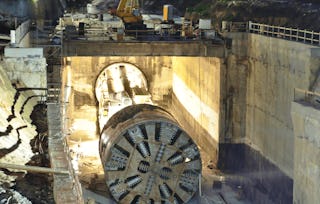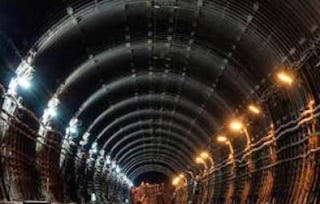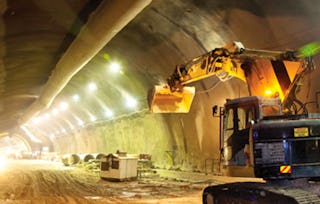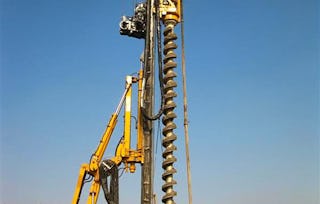The course on "Deep Excavations and Support Systems" offers a comprehensive journey through the intricacies of underground construction and soil retention. Beginning with an exploration of tunnels, caverns, and shafts, the course covers diverse applications and construction methods, emphasizing stress distribution complexities and the pivotal role of site investigation. It then delves into Pre-Excavation Support Systems, dissecting rock mass classification, excavation methods, and various support techniques like Ground Freezing and Face Grouting. The Retaining Systems module follows, providing insights into structures for soil stabilization, including Contiguous Pile, Secant Pile, Soldier Pile, Sheet Pile, and D-Wall. The final module, "Concepts and Tools in Embedded Retaining Systems," addresses design parameters, lateral earth pressures, and numerical modeling, integrating practical applications and relevant codes. This comprehensive course equips learners with the knowledge and skills needed for efficient, safe, and successful deep excavation projects. This course is majorly for consumption in the Indian subcontinent and the target audience are undergraduate and post graduate students, faculties and freshers who has entered the industry as young professionals.

Deep Excavations and Support Systems
Seize the savings! Get 40% off 3 months of Coursera Plus and full access to thousands of courses.

Deep Excavations and Support Systems
This course is part of Construction Practices in Deep excavations and Tunnels Specialization

Instructor: Subject Matter Expert
Included with
Recommended experience
What you'll learn
Types of Pre- Excavation support systems – Rock Anchors, Umbrella Arch method, Pre-Grouting, Freezing
Diaphram walls, Secant pile walls, Contigious pile walls, Soldier piles,Diaphrgam walls
Significance of Pre Excavation Support systems and Overveiw of Plaxis 2D,Wallap, RocLab and RS2
Details to know

Add to your LinkedIn profile
4 assignments
See how employees at top companies are mastering in-demand skills

Build your subject-matter expertise
- Learn new concepts from industry experts
- Gain a foundational understanding of a subject or tool
- Develop job-relevant skills with hands-on projects
- Earn a shareable career certificate

There are 4 modules in this course
Earn a career certificate
Add this credential to your LinkedIn profile, resume, or CV. Share it on social media and in your performance review.
Instructor

Offered by
Explore more from Environmental Science and Sustainability
 Status: Free Trial
Status: Free Trial Status: Free Trial
Status: Free TrialL&T EduTech
 Status: Free Trial
Status: Free TrialL&T EduTech
 Status: Free Trial
Status: Free TrialL&T EduTech
Why people choose Coursera for their career

Felipe M.

Jennifer J.

Larry W.

Chaitanya A.

Open new doors with Coursera Plus
Unlimited access to 10,000+ world-class courses, hands-on projects, and job-ready certificate programs - all included in your subscription
Advance your career with an online degree
Earn a degree from world-class universities - 100% online
Join over 3,400 global companies that choose Coursera for Business
Upskill your employees to excel in the digital economy

